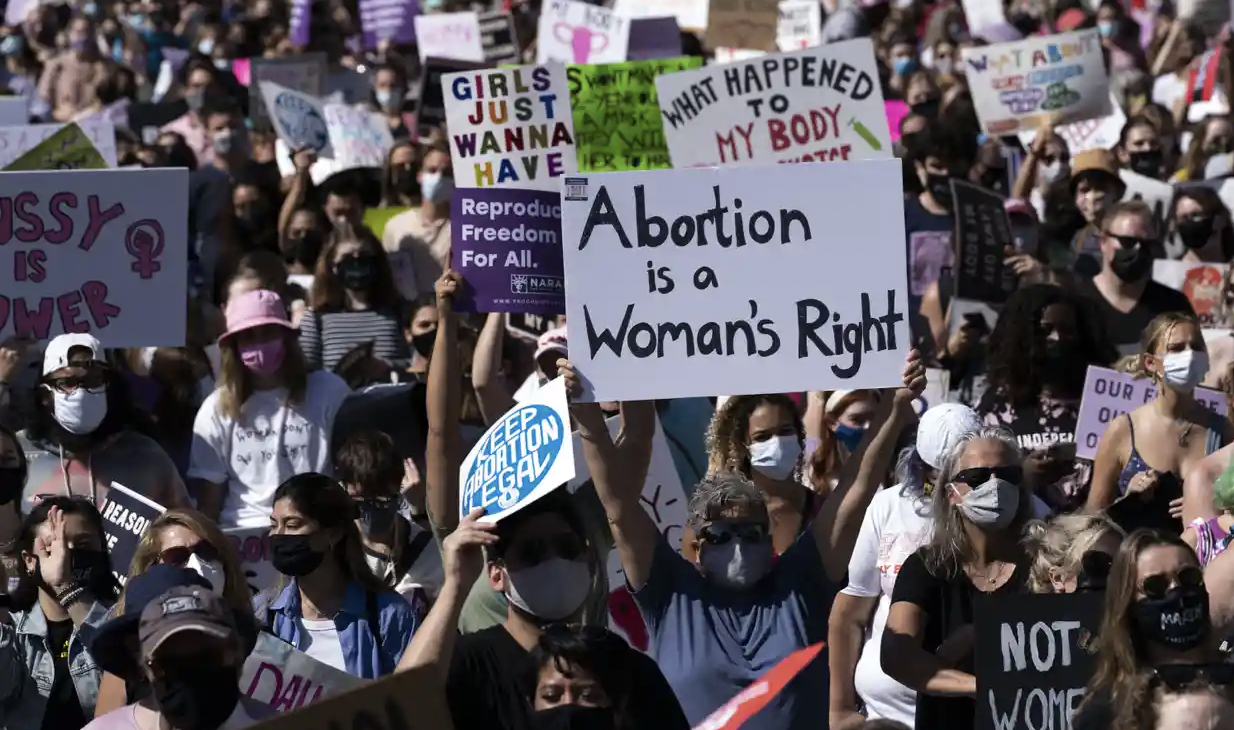Gender and Race Discrimination
Post-Roe America Bodes Resounding Implications for Women’s Rights
September 13, 2022

Nearly three months into post-Roe America, the harsh reality of Dobbs v. Jackson Women’s Health Organization continues to sink in as abortion bans spread rapidly throughout the country. Before the fateful decision had even been finalized, more than a dozen states had already designed “trigger bans”—laws preemptively written with the intention to take effect in the event Roe v. Wade was overturned. Some of these laws were implemented almost immediately, and, according to the Center for Reproductive Rights, at least eight states now have total or nearly-total abortion bans.
The Current State of Trigger Bans
In Texas, where abortion has been prohibited after around six weeks of pregnancy since last September, an even more radical trigger ban recently took effect making it a felony to provide an abortion, which is punishable by up to life in prison. This new Texas law also carries civil penalties of $100,000 per abortion, and administrative penalties in the form of revocation of a license to practice medicine. Elizabeth Sepper, professor of law at the University of Texas at Austin, explains that this criminal ban could apply to any person who hands a medication abortion pill to another, be it a pharmacist, friend, family member, etc.
In Idaho, there is an abortion ban in place whereby individuals are able to sue people accused of illegally providing abortions after about six weeks. Idaho’s trigger ban was set to take effect August 25th, however it was partially halted as the U.S. Department of Justice (“DOJ”) sued Idaho, arguing that the law would inhibit emergency room doctors from performing abortions on women who would need them in cases of medical emergencies.
In Tennessee, however, the trigger ban set to take place August 25th did take effect, joining Texas in making abortions a felony. While the heartbeat law had already been in effect since June 28, banning all abortions after embryonic cardiac activity is detected (which generally occurs around six weeks), this law reaches new heights of control, with no exceptions for rape or incest. Indeed, this new Tennessee law classifies performing or attempting to perform an abortion as a Class C felony. In order for an abortion to be legal, it must be performed by a licensed physician who determines that the abortion was necessary to prevent the death or serious injury of the pregnant woman.
Furthermore, Texas and Oklahoma have both enacted laws that allow private citizens to sue anyone who “aids or abets” someone seeking an abortion for at least $10,000 in damages.
Miscarriages in Post-Roe America
A further disturbing implication of the Dobbs decision is the reality that women who experience miscarriages–indeed, a medical instance entirely beyond their control–now face. Despite post-Roe laws technically being intended to apply only to abortions, many patients have reported difficulties receiving standard surgical procedures or medication for the loss of desired pregnancies.
The stark contrast in miscarriage care pre- and post-Roe is perhaps best encompassed in the experience of a Texas woman who was treated at the same hospital for two separate miscarriages–one before the Dobbs decision, and one after. After her miscarriage last year, Amanda says she was treated with compassion and care, awakening from her routine procedure to a signed card from her nurses, and a pink and blue bracelet with a butterfly charm, a gift from the hospital to express their condolences for her loss.
Recently, however, when she went to the same hospital doubled over in pain requesting the same procedure she had received the year prior, a dilation and curettage (or D&C), she was refused. The hospital sent her home with instructions to return only if she were bleeding so excessively that her blood filled a diaper more than once an hour. Amanda reports being home in excruciating pain, sitting in a bathtub full of dark red water, her husband holding her hand as they both cried. The fact that she was denied care and sent home in such a state is unfathomable–indeed, obstetricians say that delays in expelling tissue from a pregnancy that is no longer viable can lead to hemorrhaging, infections, and sometimes life-threatening sepsis.
Miscarriage occurs in about one in ten pregnancies, and it may even be one in four pregnancies when taking into account miscarriages that happen before patients even realize they are pregnant. The fear and confusion clouding proper medical care for women in this post-Roe climate is devastating: Dr. Monica Saxena, an emergency medical physician at Stanford Hospital says gravely, “In this post-Roe world, women with miscarriages may die.”
Potential Implications for IVF
Furthermore, questions have been raised as to whether In Vitro Fertilization (IVF) will now have legal restrictions in this post-Roe climate. Indeed, if states ban abortion starting from conception, and if there is no distinction as to whether fertilization occurs in the womb or in the lab, the implications for routine procedures in fertility treatment could be massive. Since the Dobbs decision, many fertility clinics have reported an influx of frantic calls from patients inquiring if it would be legally possible to transfer frozen embryos to states with guaranteed abortion rights.
Kristi Hamrick, a spokeswoman for Students for Life Action, a large national anti-abortion group, voiced the movement’s intention to attack IVF regulation next: “Protecting life from the very beginning is our ultimate goal, and in this new legal environment we are researching issues like IVF, especially considering a business model that, by design, ends most of the lives conceived in a lab,” she said.
Additionally, anti-abortion advocates in some states are eager to introduce so-called “personhood bills,” which could theoretically afford rights to embryos before they are even implanted. These laws could potentially make it more difficult for aspiring parents to decide the fate of their own genetic material, including whether they can legally dispose of embryos that they do not intend to use for future pregnancies.
Looking Ahead
Indeed, the reality we now face in our country is tragic: decades of precedent guaranteeing women’s rights have now been reversed. The unfortunate truth is that we as a country are only beginning to navigate what additional implications the overturning of Roe v. Wade will have on women and families everywhere. At Filippatos PLLC we value and uplift all women and believe in their inherent right to have autonomy over their own bodies. In these perilous times, some solace can be found in the profound words of Dr. Martin Luther King: “the arc of the moral universe is long, but it bends toward justice.” It took over 50 years from the trailblazing of the 1960’s civil rights movement—which put into law the equal treatment of women in the workplace—to get to the #MeToo realization that women cannot experience equity in employment so long as they are routinely demeaned and objectified as sexualized chattel. It will also take some tumultuous times and “good trouble,” in the words of John Lewis, to constitutionalize the principle that women’s rights are human rights and each human being possesses the sanctity of self-determination regarding their own body. We at Filippatos PLLC will continue to do our part by advocating for all women, including pregnant women, in the workplace and beyond.
Call Us
If you are facing a pregnancy-related issue at work, please give us a call at 888-9-JOBLAW for a free consultation. We will do our utmost to help secure you the justice you deserve.
